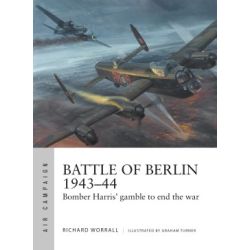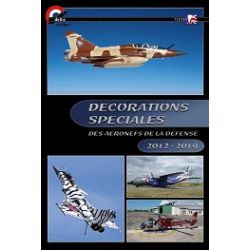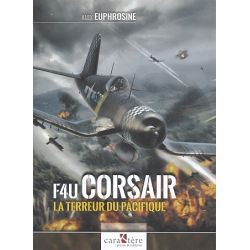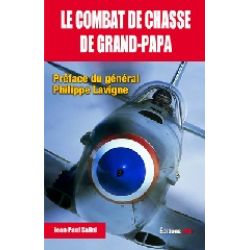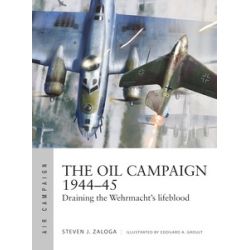Fermeture estivale du 1er août inclus au 22 août 2023
- Accueil
- › Aviation militaire - Seconde Guerre mondiale
- › Aviation Militaire Japon
- › MITSUBISHI A6M ZERO FLIGHTCRAFT 22
Descriptif
The quality of Japanese aircraft came as an unpleasant surprise to the Allies at the outbreak of the Pacific War, and it was personified in one type, the Mitsubishi A6M Zero.
One of the finest aircraft of all time, the Mitsubishi A6M Reisen (Zero fighter) first flew on 1 April 1939. It soon showed itself to be clearly superior to any fighter the Allies could put into the air in the early stages of the Pacific campaign. Armed with two 20mm cannon and two 7.7mm machine-guns, it was highly manoeuvrable and structurally very strong, despite being lightweight.
Instead of being built in several separate units, the Zero was revolutionary in that it was constructed in two pieces. The engine, cockpit and forward fuselage combined with the wings to form one rigid unit; the second part comprised the rear fuselage and the tail. The two units were joined by a ring of 80 bolts. Although the Mitsubishi Zero had some serious drawbacks in combat, the greatest of which was its inability to absorb punishment because of its lack of self-sealing fuel tanks and armour plating, its greatest assets were its manoeuvrability and its long range.
In 1942 the Americans allocated the code-name Zeke to the A6M, but as time went by the name Zero came into general use. During the first months of the Pacific War, the Zeros carved out an impressive combat record. For example, in the battle for Java alone, which ended on 8 March 1942, they destroyed 550 Allied aircraft. As the war progressed, however, the Zero gradually came to be outclassed by American fighters such as the Grumman F6F Wildcat and Vought Corsair. In the latter months, many were fitted with bombs and expended in Kamikaze suicide attacks.
This book provides a perfect introduction to the design and combat career of a fighter that made history. Why was the Zero conceived? What was it like to fly in combat? How did it compare with Allied types? Who were the engineers and designers who brought it to fruition and the pilots who became aces while flying it? Here is a feast for the modeller, with a wealth of technical information, photographs and colour profiles.
One of the finest aircraft of all time, the Mitsubishi A6M Reisen (Zero fighter) first flew on 1 April 1939. It soon showed itself to be clearly superior to any fighter the Allies could put into the air in the early stages of the Pacific campaign. Armed with two 20mm cannon and two 7.7mm machine-guns, it was highly manoeuvrable and structurally very strong, despite being lightweight.
Instead of being built in several separate units, the Zero was revolutionary in that it was constructed in two pieces. The engine, cockpit and forward fuselage combined with the wings to form one rigid unit; the second part comprised the rear fuselage and the tail. The two units were joined by a ring of 80 bolts. Although the Mitsubishi Zero had some serious drawbacks in combat, the greatest of which was its inability to absorb punishment because of its lack of self-sealing fuel tanks and armour plating, its greatest assets were its manoeuvrability and its long range.
In 1942 the Americans allocated the code-name Zeke to the A6M, but as time went by the name Zero came into general use. During the first months of the Pacific War, the Zeros carved out an impressive combat record. For example, in the battle for Java alone, which ended on 8 March 1942, they destroyed 550 Allied aircraft. As the war progressed, however, the Zero gradually came to be outclassed by American fighters such as the Grumman F6F Wildcat and Vought Corsair. In the latter months, many were fitted with bombs and expended in Kamikaze suicide attacks.
This book provides a perfect introduction to the design and combat career of a fighter that made history. Why was the Zero conceived? What was it like to fly in combat? How did it compare with Allied types? Who were the engineers and designers who brought it to fruition and the pilots who became aces while flying it? Here is a feast for the modeller, with a wealth of technical information, photographs and colour profiles.
Les avis sur le produit MITSUBISHI A6M ZERO FLIGHTCRAFT 22
Nos clients ont aussi aimé
|
MITSUBISHI A6M ZERO FLIGHTCRAFT 22
|
Ajouter au panier |
- Les Pionniers de l'aviation
- Aviation militaire - Première Guerre mondiale
- Entre Deux Guerres
-
Aviation militaire - Seconde Guerre mondiale
- Nouveautés Seconde Guerre mondiale
- Aviation Militaire Française
- Aviation Militaire britannique
- Aviation Militaire US
- Aviation Militaire russe - URSS
- Aviation Militaire - autres Forces Alliées
- Aviation Militaire Allemagne
- Aviation Militaire Italie
- Aviation Militaire Japon
- Aviation Militaire - Autres Force de l’Axe
- Opérations Front Ouest
- Opérations Front Méditerranée
- Opérations Front Est
- Opérations Front Pacifique
- Opérations Front Atlantique
- Aviation Militaire à Réaction
- Magazines Seconde Guerre mondiale
- Récits, Biographies Seconde Guerre mondiale
- Livres Divers Seconde Guerre mondiale
-
Aviation Militaire Contemporaine
- Nouveautés aviation militaire contemporaine
- Aviation militaire contemporaine française
- Aviation militaire contemporaine britannique
- Aviation militaire contemporaine US
- Aviation militaire contemporaine URSS, Russie, Pacte de Varsovie
- Aviation militaire contemporaine Europe et OTAN
- Aviation militaire contemporaine autres forces
- Guerre d'Indochine
- Guerre de Corée
- Guerre d'Algérie
- Guerre du Vietnam
- Guerre des Malouines - Falklands
- Guerres du Golfe - Irak - Afghanistan
- Autres Conflits Contemporains
- Hélicoptères Militaires
- Drones
- Magazines Aviation militaire contemporaine
- Collections Aviation militaire contemporaine
- Technologie - Prototypes - Expérimental
- Aviation militaire spécialisée - Transport - Espions - Surveillance
- Livres Divers Aviation militaire contemporaine
- Aéronavale
-
Aviation civile et Aviation Commerciale
- Nouveautés Aviation civile et aviation commerciale
- Aéropostale
- Aviation commerciale Avant Guerre
- L’Ere des Propliners - Les Hélices
- Jets Aviation commerciale
- Histoire des Compagnies Aériennes
- Registres Aviation commerciale
- Ouvrages Divers Aviation commerciale
- DVD Aviation commerciale
- Aéroports
- Magazines aviation civile et commerciale
- Catastrophes aériennes
- Formation personnel navigant
- Formation des pilotes aviation civile et aviation commerciale
- Livres divers Aviation commerciale
- Aviation française
- Hélicoptères - Autogires
- Aviation légère, aviation tourisme
-
Les Grandes Collections
- Nouveautés des Collections
- 4+ Publications
- Aerofax
- Les Ailes françaises
- Aircraft In Detail
- Air Doc
- Airdoc Smoke Trails
- AIRfile
- AJ Press
- Albatros
- Ali Straniere in Italia
- Airlife Combat Legend
- Ali d’Italia
- Altipresse : Histoires Authentiques
- Avions et Pilotes
- Batailles aériennes
- Camouflage & Markings
- Ciel de Guerre
- Coccarde Tricolori
- Daco
- Docavia
- Im Focus
- Ginter Air Force Legend
- Ginter Naval Fighters
- HT Model
- IBN
- Icare
- Kagero Legend of Aviation
- Kagero Lotniczne
- Kagero Monographie
- Kagero SMI Library
- Kagero Topcolors
- Kagero Top Drawings
- Kagero Units
- Kagero Topshots
- Luftwaffe at War
- Matériels de l'Armée de l'Air
- MBI Publishing
- Mini Docavia
- Mushroom
- Nordic Air Power
- Osprey Aircraft of the Aces
- Osprey Air Vanguard
- Osprey Airwar
- Osprey Combat Aircraft
- Osprey Duel
- Osprey Elite
- Osprey Modelling
- POL
- Rae
- Red Star
- SAM Air Data
- SAM Modeller Datafile
- Squadron Signal in action
- Squadron Signal In Detail and Scale
- Squadron Signal spéciaux
- Squadron Signal Walk Around
- Suomen Ilmavoimien Historia (Filnande)
- Warbird Tech
- Warpaint
- Warplane
- WAW
- Wings of the Black Cross
- Wingmasters Hors série
- WYD
- Bandes Dessinées - Ouvrages de Peintures - Photos aviation
-
Maquettes à monter et Die-Cast
- Nouveautés maquettes à monter et Die Cast
- Trumpeter/Revell/Roden/RS Models à monter 1/72ème
- Accessoires Aéroport
- Dragon Milit. 1/72
- Dragon militaires 1/400
- Herpa 1/500
- Herpa 1/400
- AZUR/FRROM maquettes à monter 1/72ème
- A&A Models/ACADEMY/AIRFIX/AMODELARMA HOBBY/AZUR/DORA WINGS/FRROM/SPECIAL HOBBY maquettes à monter 1/72ème
- Hasegawa/Heller/Hobby Boss/IBG/ICM/ITALERI/Mister Craft/ZVEZDA-maquettes à monter 1/72ème
- Gemini Civil 1/400
- Dragon civil 1/400
- Divers Modèles à monter et Die Cast
- Multimédia
- Conquête spatiale, espace
- Calendriers, Histoire militaire, jeux, sets de peintures et produits divers
- LE KIOSQUE
Informations


